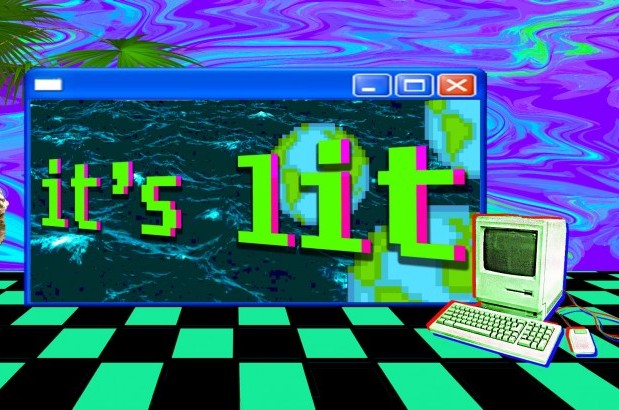SABRINA MATICA-HICKEY exposes the dark side of internet culture.
In a 2000 episode of BBC Newsnight, David Bowie prophetically told Jeremy Paxman, ‘The internet now carries the flag of being subversive and possibly rebellious—chaotic and nihilistic.’ Given his status as one of music’s most dynamic, culturally and technologically radical artists, it may not be surprising to hear Bowie foreseeing the implications of one of the defining spheres of our generation.
Fast-forward 16 years and this statement is unnervingly relevant. The now omnipresent World Wide Web is permeated by the rebellious and chaotic elements he predicted; one of the most prominent being the emerging trend of self-styled online ‘pranksters’. Exploring everything from the clever to the crude, the videos they create are a far cry from whoopee cushions and strategically placed banana skins. Their euphemistically termed ‘social experiments’ go to extreme and frequently violent lengths to earn the coveted ‘likes’ and ‘lols’ that have become ingrained in our own discourse and everyday lives. But perpetuating this culture of ‘banter’ insidiously allows for any action to be legitimised in the name of online validation. As the genre grows rapidly wider and wilder, the precarious morality of these pranks must be questioned.
Self-proclaimed ‘YouTubers’ are gaining more and more recognition in spheres outside their own virtual channels. Producing online videos has increasingly become a viable means of making a living, with many vloggers now crossing over into mainstream popular culture. While prank videos may appear to be a relatively new trend, it is undeniably clear that this trend shows no sign of dissipating: in 2013, the top 10 channels in this domain amassed roughly 3.5 billion views, and according to video analytics company Tubular Labs, prank videos accounted for 17.7 billion views in 2015.

Practical jokes have, of course, been around for far longer than the internet, and prank videos have been a part of our visual and virtual cultures through Lauren and Hardy to the now bygone age of You’ve Been Framed. Yet clips of clumsy cats, overly excitable dogs and knicker-flashing grannies seem incredibly tame when compared to the extravagant videos we see online. The web acts as the perfect medium for carrying out increasingly elaborate and morally provocative pranks. In the virtual world, things that seem incomprehensible in real life are permissible, and their potentially negative consequences seem distant and intangible. By the time these videos reach us, they are just that, videos–on their way to being online sensations. Somehow we seem to forget that just because we’re viewing it in the virtual world, it doesn’t mean it didn’t actually happen in real life. The effects of these pranks certainly won’t impact our lives as viewers, so why should we care that someone’s decided to upload a video in which they unflinchingly consume a rat’s head? Does it really matter if a man convinces his distraught girlfriend that he’s accidentally blown up her son? Apparently not. As infamous vlogger Rowan Atwood says, ‘When it comes to pranking friends and family, the line is pretty far away.’ It seems that nothing and no one is exempt from falling victim to ‘pranksters’, whether they consent to it or not.

An enormous subset of these videos relies on harassment of women as the basis of the ‘humour’. Glancing at some of the obscenely misogynistic comments left on many of these videos is enough to realise the pivotal role they play in the normalisation of unwanted advances and intimidation of women. Many of these videos leave the women involved feeling vulnerable, scared, and humiliated. Recent videos to gain notoriety include Jack Jones’ compilation of incessantly approaching women for ‘National Kiss Day’, and Brad Holmes’ video in which his girlfriend Jenny Davies is shown in pain after he rubbed chilli on her tampon as a ‘joke’. Previous videos of Holmes’ include cutting his partner’s hair whilst she lay sleeping and numerous fraudulent marriage proposals. The now infamous ‘chilli tampon’ video was met with outcry from women’s groups who claimed it normalised relationship abuse, and has since been removed from Facebook. Paulina Dregvaite, a 22 year old student who appeared in Jones’ video, said of her experience: ‘I feel sick and violated […] the video was put up without my consent and now thousands of people are calling me a fat cow because I refused to kiss a man I had no desire to kiss’. Nevertheless, these crass videos are repeatedly legitimised under the sanitised label of banter.
Online pranksters pride themselves on shocking and dividing society in the hope of accumulating more and more likes, subscribers and other modes of online validation. As they desperately attempt to sustain their online credentials, their videos come to rely on highly controversial, frequently offensive content that transgresses ethical boundaries. The internet allows fame-hungry individuals to go too far, and the consequences for their unassuming targets must no longer be overlooked. We, the viewers, must not legitimise their more oppressive behaviour by watching, liking or sharing. We cannot lose sight of the very real contexts and implications of these videos, lulled into the unreality of the virtual platform. It’s not just ‘a bit of banter’ at all.





